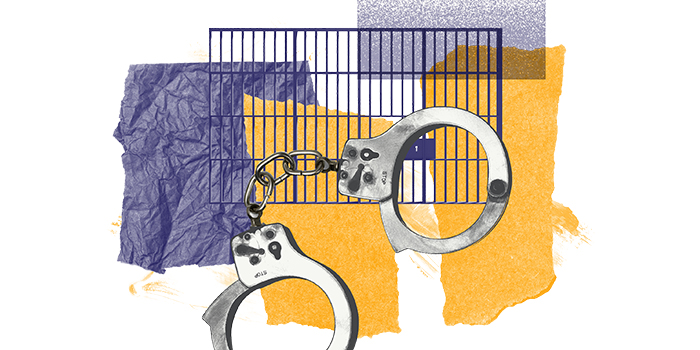
Boyer v. Jeremiah
Summary
On March, 29, 2010, The American Civil Liberties Union, the Rhode Island Affiliate of the ACLU, cooperating law firms Strauss, Factor, Laing & Lyons and Hardy Tabor & Chudacoff, and New York Law School’s Racial Justice Program, filed suit in Rhode Island state court challenging a number of unconstitutional practices of the state’s truancy court, and the ways in which public school officials in the cities of Coventry, Cumberland, North Providence, Providence, Westerly, and Woonsocket refer students to the truancy court system. This case is part of the ACLU Racial Justice Program’s continued efforts to end the school-to-prison pipeline – the disturbing national trend wherein children are funneled out of the public schools and into the juvenile and criminal justice systems. Across the country, the school-to-prison pipeline disproportionately effects low-income communities and communities of color.
This suit was brought on behalf of 10 students who have been referred to the truancy court system by one of these municipalities, as well as their parents or guardians, and on behalf of all other parents, guardians, and students who have been, are now, or could find themselves in the truancy court system. The lawsuit names as defendants a number of state family court judges and officials from the six school districts.
Although the truancy court system was originally designed to divert truant youth from the more formal family court in Providence to a neighborhood court from which they could more easily access the services that they needed to stay in school, it is frequently not used for that purpose. School districts use the truancy courts to punish students who are not truant but who may have difficulty paying attention while at school or doing their schoolwork because of special educational needs, are unable to attend school because of medical or emotional difficulties or who have family caretaking obligations that cause them to arrive at school late.
In violation of United States and Rhode Island Constitution, the lawsuit charges, parents, guardians and students are not given sufficient notice of the type of behavior that could result in a referral to truancy court. That failure enables school officials to engage in the “arbitrary and capricious exercise of official discretion.” In addition, the suit charges that the truancy court officials administer the court with little regard for federal and state law. In violation of the Due Process Clause of the Fourteenth Amendment of the United States Constitution, and Rhode Island state law, judicial officials routinely deprive the children who appear in Truancy Court of:
- Their right to a preliminary investigation of the charges against them to ensure that those charges are legally sufficient and that their prosecution is in the best interest of the children and the public;
- Their right to rebut those charges if they believe that they have been falsely accused;
- Their right to consult with an attorney before admitting to the charges;
- Their right to an interpreter if they do not speak or have difficulty speaking English;
- Their right to challenge school officials who claim that they have violated the terms and conditions of their dispositions if they admitted to the charges against them; and
- Their right to have Court proceedings transcribed or recorded so that they may contest or appeal rulings against them. Truancy Court maintains no records of its proceedings and most of its orders are handwritten in shorthand and illegible.
The unconstitutional practices of the truancy court system result in kids being pushed unnecessarily into the juvenile justice system, subjected to a pattern of verbal abuse and intimidation by school and court officials, forced to miss valuable class time to attend truancy court proceedings, required to open their homes and private lives to unwarranted scrutiny, compelled to attend school when they are medically unable, unnecessarily referred to the Rhode Island Department of Children, Youth and Families, wrongfully incarcerated in the state’s Training School, and subjected to continued and substantial stress, humiliation, and anxiety.
Communicate with the legal team about this lawsuit or share your story:
www.aclu.org/ri-truancy-intake.
Legal Documents
-
05/12/2010
Boyer v. Jeremiah – Woonsocket Education Department Consent Order
Date Filed: 05/12/2010
-
05/12/2010
Boyer v. Jeremiah - Amended Complaint
-
03/29/2010
Boyer v. Jeremiah - Complaint
Press Releases
Woonsocket Education Department Will Stop Sending Children To Unlawfully Operated Rhode Island Truancy Courts After ACLU Files Lawsuit
ACLU Lawsuit Challenges Unconstitutional Practices Of Rhode Island Truancy Courts